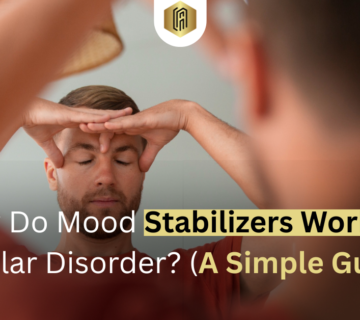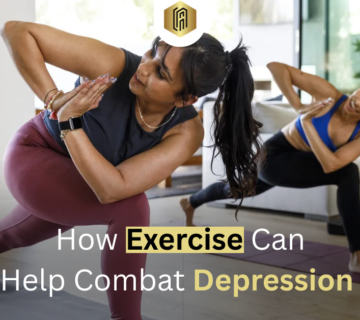You know something isn’t right, but you can’t name it. The most minor things set you off. Your body feels wound up for no good reason.
You figured you’d gotten past whatever happened, only you haven’t.
Unresolved trauma sneaks into ordinary moments and makes them harder than they should be.
These trauma symptoms can affect every aspect of your life.
Unresolved Trauma Symptoms
Trauma is what happens when life throws something at you that’s too much to handle in the moment.
Your brain files it away, but not neatly. It leaves traces that show up later in ways you might not connect to the original traumatic experience.
Could be something big, could be a series of smaller things that wore you down over time. Either way, your nervous system remembers these trauma responses.
-
Physical Trauma Symptoms
Your nervous system learned to stay alert after traumatic experiences. Even when everything’s fine, part of you is still watching for trouble.
You might notice:
- Your heart speeds up when people argue nearby
- Loud noises make you jump more than they should
- Your shoulders live somewhere up near your ears
- Headaches that come from nowhere
Your body keeps track of things your conscious mind would rather forget.
-
Trauma-Related Sleep Problems
Night should mean rest, but unresolved trauma can turn bedtime into a wrestling match with your own brain.
It’s hard to get restful sleep:
- You’re exhausted but can’t fall asleep
- You wake up every few hours for no reason
- Dreams leave you more tired than when you went to bed
- You need everything just right – temperature, sounds, lighting
- Sleep feels vulnerable, like letting your guard down
- You’d rather stay up late than lie there awake
Your brain has trouble believing it’s safe enough to really rest.
-
Trauma Effects on Relationships and Trust Issues
You want to be close to people, but something always feels off. Trust doesn’t come easy after trauma, even with people who’ve earned it.
Connection feels hard:
- You like people, but social events drain you
- You catch yourself agreeing when you don’t really agree
- Getting close to someone feels risky
- You worry about being too much or not enough
- Conversations feel like performances sometimes
- Setting boundaries feels mean, so you don’t
Part of you wants connection. Another part remembers what happens when you let people get too close.
-
Emotional Dysregulation and Mood Swings From Trauma
Things that shouldn’t be a big deal feel huge, or nothing feels like anything at all.
Feelings get confusing:
- You go from fine to furious faster than makes sense
- Some days you feel like you’re watching your life through glass
- You can’t cry when you actually need to
- Emotions feel guilty, like you shouldn’t have them
- You also shut down when things get intense
- Your mood shifts for reasons you can’t figure out
It’s not that you’re unstable. Your system just learned some unhelpful patterns.
-
Racing Thoughts and Mental Exhaustion After Trauma
There’s overthinking. Your brain runs scenarios, analyzes conversations, and tries to stay three steps ahead of problems.
Mental chatter includes:
- Replaying what you said to someone and how you said it
- Imagining worst-case outcomes for daily situations
- Starting tasks but losing focus halfway through
- Going completely blank when you need to think clearly
- Jumping between thoughts without finishing any of them
- Feeling like someone left the radio on in your head
Your mind works overtime trying to keep you safe from things that probably won’t happen.
-
Trauma Triggers in Daily Life
Certain things hit you wrong for reasons that don’t make obvious sense when you have unresolved trauma. Your reaction feels too big for what’s actually happening.
Unexpected triggers:
- A particular smell that makes your stomach drop
- Someone standing too close behind you
- Raised voices, even when they’re not angry
- Feeling trapped in slow-moving lines or traffic
- People in positions of authority
- Certain times of year that just feel heavy
These reactions are your system responding to echoes of something that felt dangerous before.
-
Dissociation: Feeling Disconnected From Yourself
Sometimes you go through the motions but don’t feel present in your own life when dealing with unresolved trauma.
It’s like watching everything happen to someone else.
Disconnection looks like:
- Going through your day but not really experiencing it
- Looking in mirrors and not quite recognizing yourself
- Losing time and not knowing where the day went
- Everything feels a little unreal, like you’re in a movie
- You can describe your life, but don’t feel much about it
- People say you seem distant or distracted
This disconnection protected you once. Now it might be protecting you from living fully.
-
Control Issues and Perfectionism From Trauma
When life felt unpredictable or dangerous during traumatic experiences, you learned to manage what you could. Now letting go of control feels impossible.
Control shows up as:
- Needing to know the plan, the backup plan, and the backup to the backup
- Getting anxious when other people drive or make decisions
- Perfectionism that never quite feels perfect enough
- Taking responsibility for other people’s feelings
- Having routines that can’t be interrupted
- Feeling as if you don’t handle it, no one will
Control gave you a sense of safety when everything else felt chaotic.
-
Trauma-Related Self-Criticism and Negative Self-Talk
Self-criticism becomes background noise when you have unresolved trauma.
Internal criticism sounds like:
- “You should move on from this already”
- “Stop being oversensitive”
- “You’re overreacting”
- “You just brought this on yourself”
This voice is actually trauma protecting itself by keeping you small.
-
Hypervigilance: Living in Survival Mode
You live like you’re always one step away from disaster when you have unresolved trauma. Relaxing feels irresponsible, like you’re not paying enough attention.
Survival mode means:
- Good moments feel temporary, like something bad is coming
- Planning for the future feels pointless or scary
- You make decisions based on what’s safest, not what you want
- Relaxation feels selfish or dangerous
- You’re always ready to run, fight, or handle the next crisis
- Happiness feels like tempting fate
Your system learned that staying alert keeps you alive. It just forgot to turn off the alarm.
These Are Survival Responses
They’re normal responses to abnormal situations. Your mind and body adapted to keep you functioning when things got tough.
The issue is when these trauma responses outlive their usefulness and start interfering with the life you want to live.
Trauma Recovery and Healing
Recognizing these trauma patterns is the first step toward shifting them. Trauma responses can be unlearned with the right trauma therapy and enough time.
Your nervous system can learn new patterns – ones based on your current reality instead of old threats.
Get Treatment and Professional Help
At Ascension Psychiatric Services, we work with people whose past traumatic experiences are still affecting their present lives.
We know how unresolved trauma shows up in life, and we know how to help with trauma and PTSD recovery.
We offer:
- Comprehensive assessments
- Medication management can help with sleep problems or anxiety
- Psychotherapy
- Virtual appointments
- Long-term support for your healing
Contact Ascension Psychiatric Services.
FAQs
How do I know if this is trauma or just my personality?
- Trauma responses usually developed in response to specific experiences
- They feel bigger than the current situation warrants
- They interfere with relationships or everyday functioning
- You might remember a time when you didn’t react this way
Should I consider therapy, or can I manage it?
- Some people heal naturally with time and good support systems
- Professional assistance tends to accelerate the process and offers the tools that you would not find yourself
- When these patterns are disrupting your life, then therapy will be of assistance to you
- You don’t have to struggle through this solo
What kind of help actually works for trauma?
- Different approaches work for different people
- EMDR helps process stuck memories
- Talk therapy can help you understand your patterns
- Body-based approaches address how trauma lives in your nervous system
How long does healing take?
- Everyone moves at their own pace
- Some people notice changes within a few months
- Complex trauma often takes longer to address






No comment